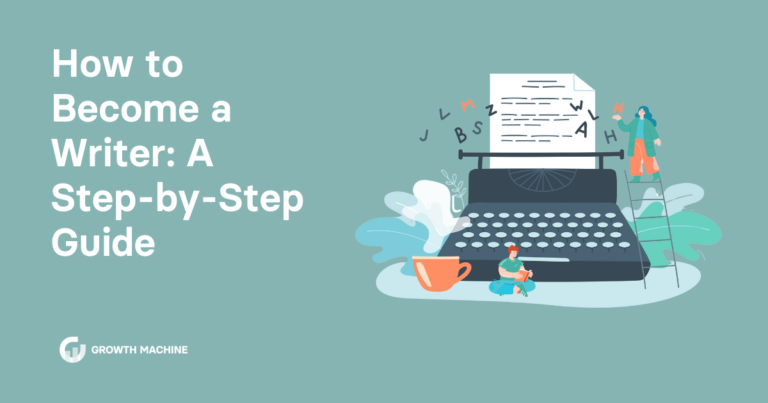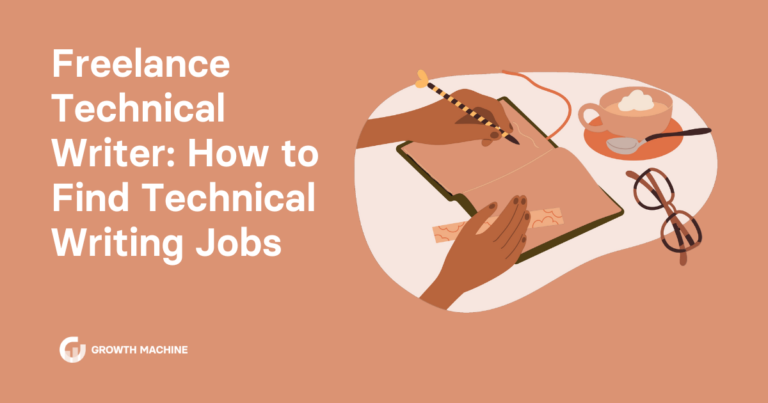Becoming a Better Writer: 6 Steps to Success
Being a writer can be a complex, but rewarding career. Whether you love creating an engaging short story or prefer to inform readers by drafting educational manuals, the career path can be varied. From nonfiction to creative writing the opportunities are endless for people who enjoy storytelling.
As the Internet age expands, digital writing and content marketing have also become far more prevalent and important to business success. This guide will help outline different writing methods and what you can do to become a better writer.
Writing Methods
The writing process depends largely on the industry and the type of writing being performed. Aside from simply having great writing skills, writers need to know their writing style and use tools to develop their skills so they can go from being just a good writer to a great writer. In general, there a few similarities across all writing styles when it comes to the creation process.
Individual Writing
The majority of writers are sole writers—they create content by themselves away from distractions and other people’s perceptions. Some writers find that they can’t produce a piece of writing if there are other people around. These writers may head to a retreat such as a cabin in the woods to do their best works.
Collaborative Writing
On the other hand, some professional writers prefer to create works in collaboration with other writers. They create standard documents by brainstorming and pooling ideas to create the most engaging content. This type of writing is becoming more common as writers become more accustomed to workplace distractions and large team efforts to produce content. For example, a group of writers may come together to brainstorm ideas for web design and content development for an E-commerce site.
This type of writing is also more prevalent as freelance and remote work becomes more commonplace. Coworking sites encourage individuals to work together and create a communal environment for writers that wasn’t as common in the past.
Visual Writing
It’s no secret that in today’s digital world, visuals are everything. More and more people are transitioning from reading black and white newsprint to devouring their news in television format with engaging and investigative videos. Cartoonists and children’s novelists used to be the sole section of writers that created written content paired with visual imagery. Today, that has changed dramatically as writers create content supplemented by infographics and drawings that express their creativity. These written pieces are sued for everything from marketing to sales and branding.
Crowd-Sourced Writing
As the world becomes more interconnected, more and more writing is becoming crowdsourced. The oldest version of crowd-sourced writing includes dictionaries and encyclopedias. In fact, the Oxford English Dictionary was created as a crowd-sourced project involving the lexicographer James Murray and a criminally insane inmate known as W.C. Minor (1). Today, crowd-sourced writing is common on platforms including Wikipedia and Quora.

Writing Philosophies
Writing philosophies refers directly to a writer’s desire to write. For writers, this can be as varied as the different writing methods. Some writers write to inform or influence while others prefer to use the medium to entertain. In digital marketing, most content writers use writing as a way to influence purchase decisions and encourage readers to complete a particular call-to-action.
Some writers also create content simply for a one-time payment. This includes ghostwriters who produce works including complete books that are not published under their own name.
Other writers produce content in order to tell a story or to entice love. Storytelling is one of the oldest forms of writing and often focus on themes such as conflict, uprisings, and cultural habits. Poetry is the most famous form of love-writing and is designed to elicit emotions from audience members.

6 Tips to Become a Better Writer
The world is full of excellent writers who’ve honed their skills to create a rewarding career. These writers — from Ernest Hemingway to Stephen King — span the globe and are from a variety of different backgrounds including Swedish, British, Russian, Arabic, Japanese, and American. For centuries, writers have been hailed as exquisite creators that take complex ideas and put them into eloquent words. Here are a few ways you can make your writing better.
1. Set-Up a Dedicated Work Space
One of the best things you can do to become a better writer is to create an environment that is conducive to writing. Whether you’re a blogger or a professional novelist, your writing area should be distraction-free. Avoid setting up your desk in the living room where you may be distracted by family members or tempted to turn on the TV. Having a separate office is the best way to ensure your writing space is free from distractions. If you don’t have the space for a dedicated office, set up your writing area in a quiet area such as your bedroom.
2. Use Writing Tools
Today, there are dozens of online resources that can help improve your writing. Sites such as Grammarly conduct checks on your writing work to ensure you adhere to grammar rules. These tools help with proofreading your work including correcting typos, providing example sentence structure advice, and making suggestions for word choice, word count, and improving short sentences. You can also sign up for a good writing class at your local community college or library to learn new writing techniques. You can find creative writing courses to get the juices flowing or opt for a technical writing course that can help you master the creation of complex documents.
A dictionary and a thesaurus can also help you improve your writing skills and enable you to reach your writing goals. There are also computer extensions that will show you a word of the day so you can gradually improve your vocabulary.
3. Track Your Thoughts
As writers, we find it helpful to carry around a notebook or use our smartphones to jot down a quick memo when we get a great writing idea. Use a tool such as OneNote or EverNote to scribble down your ideas or simply type them into the note app on your smartphone. This can help you keep track of common themes in your writing and keep track of new ideas you may forget. You can also jot down new words you learn through research and blogging ideas as you work on other projects. Hosting a podcast is another way to spitball ideas and get feedback from your listeneres before you create new content.
4. Organize With Google Drive
Google Drive is an excellent tool for writers who work with other team members including editors and publishers. Writing in Google Docs enables you to track your revision history and allows editors and readers to make suggestions and comments directly in the draft. The site features built-in word-processing tools such as an autocorrect dictionary and customizable settings so you can control line spacing and formatting. The site offers many of the same benefits as the discontinued openoffice.org which shut down in 2011.
5. Avoid Online Distractions
Writing with online tools such as Google Docs increases the chance of getting distracted. It’s easy to find yourself clicking away to social media and other distractions when you start to get writer’s block. Fortunately, there are plugins and add-ons that can hide distractions such as banner ads on your Chromebook, laptop, or desktop computer.
Use a tool such as Cold Turkey to block individual websites during certain time frames so you can stay productive and focus on the craft of writing. Tools such as Hocus Focus hide inactive screens so you can focus on the task at hand. Freedom is another great tool that prevents you from opening websites so you can’t get distracted. You can choose which specific websites to block and set recurring time frames so you stay focused throughout the work week. to improve your distraction-free writing environment.
6. Freewrite
Freewriting is one of the best ways to get ideas down onto paper. Sometimes these ideas can build up in our heads and create writer’s block. By spilling the ideas out onto a page without any formatting or structure, you can help clear your headspace to focus on what you really want to create. Start with a blank page and a pen and start writing. Let your thoughts flow out from your mind through your pen and onto the paper.
Don’t worry about proper grammar or spelling, simply try to get as many of your thoughts onto paper as possible. Take a break and then come back to what you’ve written. See if you can identify common themes or discover interesting ideas you’d like to pursue further.
This practice can help freelancers identify new writing prompts and ideas for a first draft. If it’s your first time freewriting, it helps to clear your space of distractions that may impede your thoughts. head to a quiet space and let your ideas develop as you begin to write.

Become a Professional Writer
Whether you want to create stunning poetry like Oscar Wilde, become a novelist like Toni Morrison, or produce bestselling fiction works with Random House publishing, understanding writing methods and how to improve your skills can help you achieve your goal. The best writer understand their own writing style and use hard work and trade tools to improve their skills. These tips can help you improve everything from standard documents to bold initiatives.
Jump into your writing career and join our database of freelance writers at Growth Machine. Simply fill out our sign-up form and we’ll reach out to you when new opportunities arise that are a good fit for your skill set. While most opportunities are focused on the United States market, we do occasionally have opportunities for jobs in different languages including German and Spanish.







